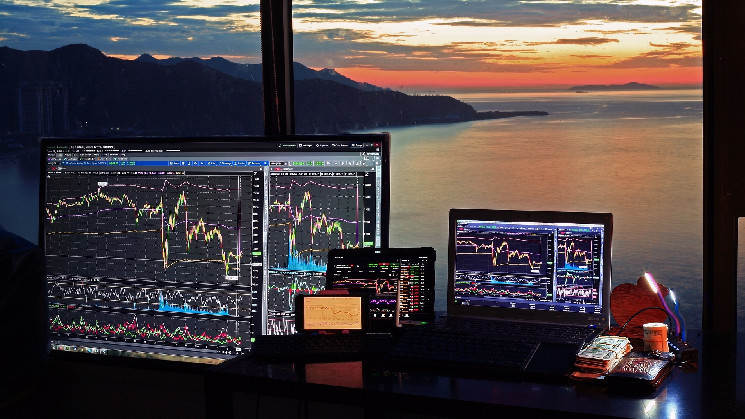The unfold between ether and bitcoin implied volatility indexes has widened, reflecting pleasure in regards to the potential debut of spot ETH ETFs within the U.S.
Volatility pricing could also be off the mark as a result of establishments would possibly use the spot ETFs to arrange non-directional foundation trades, as they’ve been reportedly doing in BTC.
Demand for ether ETFs could also be tepid.
Spot ether exchange-traded funds (ETFs) are anticipated to start buying and selling within the U.S. this yr. The extremely anticipated debut has traders positioning for increased volatility within the ether (ETH) worth relative to bitcoin (BTC).
There is a chance that the thrill about spot ether ETFs could also be unfounded, one observer advised.
The unfold between the forward-looking, 30-day implied volatility indexes for ether (ETH DVOL) and bitcoin (BTC DVOL) flipped constructive in April on dominant crypto choices trade Deribit. Since then, it has risen to 17%, based on information tracked by Amberdata. Implied volatility estimates the diploma of future worth swings primarily based on choices costs.
In different phrases, ether’s implied volatility has been constantly larger than bitcoin’s for over two months. This richness could not persist, based on Greg Magadini, director of derivatives at Amberdata.
“I proceed to stay skeptical that this relative volatility premium stays persistent. Quite a lot of chilly water was splashed on the BTC ETF Inflows narrative, given the hypothesis that funds are merely buying and selling the BTC foundation versus taking outright ETF publicity,” Magadini stated within the weekly publication.
A lot of the thrill over spot ether ETFs most likely stems from the truth that bitcoin ETFs have drawn almost $15 billion in investor cash since their debut in January.
Initially, BTC’s worth surged alongside ETF inflows. That rally has now stalled, with business consultants attributing most ETF inflows to a non-directional arbitrage technique – the money and carry, or foundation, commerce – as an alternative of outright bullish bets.
That has toned down the bullish spot ETF narrative. In any case, establishments would possibly use spot ether ETFs to arrange foundation trades.
“If that is true, does the ETH ETF actually react aggressively to the beginning of an ETF buying and selling? Particularly by such a big margin throughout the board within the time period construction,” Magadini wrote.
Time period construction is a graphical illustration of implied volatility for various maturities and is often upward-sloping: larger volatility is anticipated in the long run. Ether’s time period construction is considerably increased than bitcoin’s, indicating heightened expectations for volatility throughout all time frames.
There’s one other signal the market is likely to be a little bit too enthusiastic about spot ether ETFs: Open curiosity in ether futures listed on the Chicago Mercantile Alternate is considerably lower than bitcoin futures. The determine for ether futures is $1.6 billion in contrast with nearly $10 billion in bitcoin futures, based on Velo Information.
The discrepancy reveals ether has but to seek out the institutional acceptance of bitcoin, and inflows into the upcoming ether ETFs might be tepid in contrast with the bigger cryptocurrency. Funding banking big JPMorgan warned final month that ether ETFs could amass simply $3 billion in web inflows this yr.
“The true decision to this query [about persistent of ether vol premium] comes once we see the precise ETF inflows and quantity. If this appears something just like the CME OI between BTC futures and ETH futures, I feel ETH nonetheless doesn’t have the mainstream enthusiasm that BTC has seen,” Magadini stated.
“Longterm I nonetheless love ETH, however there appears to be a buying and selling alternative across the ‘fast’ ETH relative vol pricing in the present day,” Magadini added.
Volatility buying and selling entails betting on the diploma of worth swings. Buyers sometimes promote choices or volatility futures when anticipating a slide within the implied volatility.


